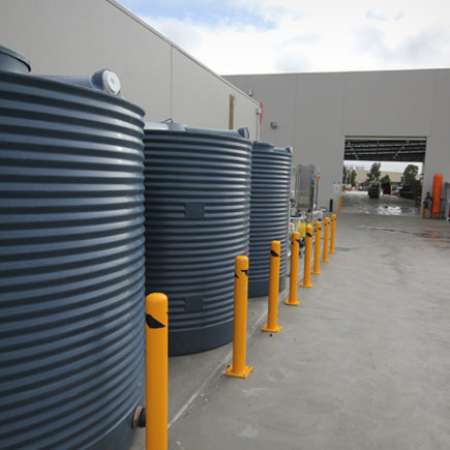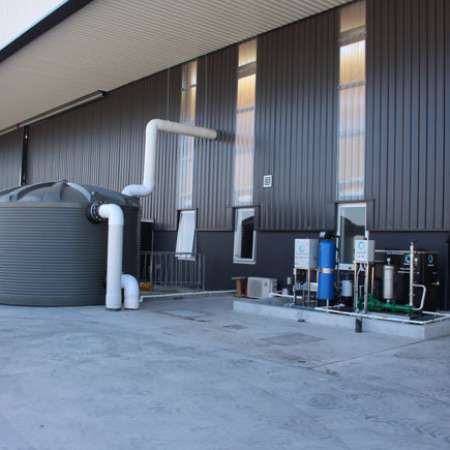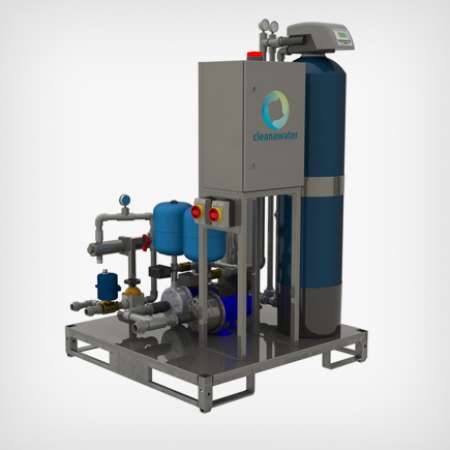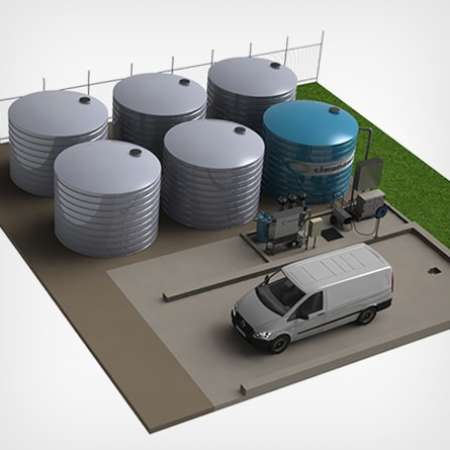Your total guide to stormwater and rainwater harvesting in Victoria
Melbourne’s unique climate and urban growth make sustainable water management more crucial than ever. Whether you’re aiming to reduce water bills at home or meet stringent environmental regulations at your business, rainwater harvesting offers a practical and eco-friendly solution.
In this guide, we’ll cover the essential guidelines for installing and managing rainwater harvesting systems in Melbourne, along with the benefits of proper rainwater treatment.
Here’s what we’ll cover:
-
Choosing the right rainwater harvesting system for Melbourne
-
How Cleanawater can help with rainwater harvesting and treatment
If you’re ready to implement a reliable rainwater harvesting system, visit our Rainwater and Stormwater Harvesting page for tailored solutions.
What is rainwater harvesting, and how does it work?
What is rainwater harvesting?
Rainwater harvesting involves collecting and storing rainwater from surfaces like rooftops for later use. It’s a sustainable way to supplement water supply, reduce reliance on mains water, and cut costs. This method is particularly valuable in Melbourne, where unpredictable weather can strain local water resources.
How does rainwater harvesting work?
Let’s talk about how a rainwater harvesting system works. Typically, the system includes the following components:
-
Catchment area: Rainwater is collected from surfaces like rooftops, which act as the first point of contact.
-
Conveyance system: Gutters and downpipes channel the water from the catchment area to storage.
-
Storage tanks: The rainwater is held in tanks, which vary in size based on the user’s needs.
-
Treatment systems: Filters, UV disinfection, and other systems ensure the water is safe for its intended use.
Each component works together to create a seamless process for capturing and reusing rainwater, whether for irrigation, household use, or industrial applications.
How is rainwater harvesting sustainable?
Rainwater harvesting reduces dependence on Melbourne’s mains water supply and prevents excess stormwater from overwhelming drainage systems. By capturing and reusing water, it helps conserve natural resources and mitigates urban flooding. Additionally, it lowers the carbon footprint associated with treating and distributing mains water.

Melbourne-specific rainwater harvesting guidelines
Rainwater harvesting in Melbourne is governed by strict regulations to ensure system safety, efficiency, and compliance. Below is a breakdown of the key regulatory bodies and their respective guidelines.
Key regulatory bodies governing rainwater harvesting in Melbourne
Victorian Building Authority (VBA)
The VBA regulates plumbing and building systems, including rainwater harvesting installations. Their guidelines cover:
-
Rainwater tank placement: Tanks must be positioned to prevent overflow and minimise contamination risks.
-
Backflow prevention: Devices must be installed to stop harvested rainwater from contaminating the mains supply.
-
Stormwater management: Rainwater systems should integrate with stormwater solutions to reduce environmental impact.
For more details, refer to the VBA’s stormwater guidelines.
Melbourne Water
Melbourne Water focuses on sustainable water use and flood prevention. Their guidelines encourage rainwater harvesting to reduce stormwater runoff and protect local waterways. Key recommendations include:
-
Integrating rainwater systems into broader Water Sensitive Urban Design (WSUD) practices.
-
Ensuring proper filtration and rainwater storage capacity to maintain water quality.
Visit Melbourne Water’s stormwater guidelines for comprehensive insights.
EPA Victoria
The EPA sets water quality standards for rainwater used in non-potable and potable applications. Their regulations ensure systems meet health and environmental safety standards. Specific requirements include:
-
Treatment standards for potable water use.
-
Compliance monitoring for businesses using rainwater in industrial processes.
For more information, see the EPA’s stormwater management guidelines.
Residential rainwater harvesting guidelines
Tank installation requirements
Homeowners must ensure rainwater tanks meet minimum storage capacity standards, typically determined by roof size and household water usage. Tanks should be installed on level, stable ground to prevent tipping or overflow.
Connection to household systems
Rainwater can be used for non-potable purposes like toilet flushing and laundry. However, installations must include backflow prevention devices to safeguard the mains water supply.
Permit and approval processes
Many councils require permits to install rainwater systems. Homeowners should check local regulations and submit necessary applications through the Victorian Building Authority.
Commercial and industrial rainwater harvesting guidelines
System design and installation
Businesses often require larger systems with advanced filtration and storage capabilities. The design must account for higher usage volumes and meet specific industry requirements.
Water quality and treatment standards
Industrial applications, such as cooling or cleaning, demand high water quality. Systems must comply with EPA Victoria’s treatment standards to ensure safety and efficiency.
Maintenance and compliance monitoring
Regular system maintenance, including cleaning filters and inspecting tanks, is crucial. Businesses are also required to keep records of water usage and treatment to demonstrate compliance during audits.
Stormwater management and sustainability requirements
Reducing stormwater runoff
Melbourne Water encourages the use of rainwater harvesting systems to treat, reuse and store rainwater. Capturing rainwater helps reduce the risk of flooding and prevents pollutants from entering waterways.
Sustainability initiatives
Local councils often provide incentives, such as rebates, to encourage sustainable practices. Programs like Melbourne’s Integrated Water Management Framework support businesses and homeowners in adopting rainwater harvesting.

Consequences of non-compliance
Failing to adhere to Melbourne’s rainwater harvesting guidelines can result in a range of consequences, from financial penalties to operational setbacks. For homeowners, an improperly installed rainwater collection system may lead to water contamination or structural issues, such as tank overflows and damage to the property.
For businesses, non-compliance carries more severe risks, including:
-
Fines and penalties: Regulatory bodies like the EPA or local councils can issue fines for breaches of water quality and installation standards.
-
Operational shutdowns: Industrial operations that rely on non-compliant water systems may face enforced shutdowns until issues are resolved.
-
Reputational damage: Environmental non-compliance can harm a business’s reputation, potentially losing customer trust and future opportunities.
Regular system checks, maintenance, and adherence to guidelines are essential to avoid these pitfalls.
How rainwater harvesting water treatment works
Why is rainwater harvesting treatment necessary?
Rainwater may seem pure, but it often picks up contaminants on its journey from sky to storage. Dust, leaves, and animal waste can accumulate in the storage system, making the water unsuitable for many uses without treatment. Effective treatment ensures the water meets quality standards for specific applications, whether it’s for garden irrigation or industrial use.
Common rainwater treatment methods
A robust rainwater treatment system typically includes several stages to ensure water safety:
-
First flush diverters: These devices remove the initial runoff of rainwater, which is often the most contaminated.
-
Filtration systems: Filters trap debris and sediment, ensuring cleaner water enters the storage tank.
-
UV disinfection: Ultraviolet light neutralises harmful microorganisms such as bacteria and viruses.
-
Chlorination: In some cases, chlorine is added as an extra safeguard, especially for drinking water.
Each method plays a crucial role in delivering safe, usable water tailored to your specific needs.
Benefits of a rainwater treatment system
A well-designed treatment system offers:
-
Improved water quality: Ensures safe water for household, commercial, or industrial use.
-
Expanded applications: Treated rainwater can be used beyond irrigation, including in toilets, laundry, and industrial processes.
-
Regulatory compliance: Helps meet the stringent water quality standards set by EPA Victoria.

The advantages of harvesting rainwater in Melbourne
Environmental benefits
Rainwater harvesting significantly reduces rainwater runoff, helping to protect Melbourne’s waterways from pollution. By capturing and reusing your rainwater supply, you’re also lessening the demand on the city’s mains water supply, conserving precious resources.
Financial benefits
Installing a rainwater harvesting system can lead to substantial savings on water bills. For businesses, the financial incentives are even greater, as many councils offer rebates for sustainable water practices.
Practical applications of harvested rainwater
Treated rainwater can be used for a variety of purposes:
-
Residential: Garden irrigation, toilet flushing, and laundry.
-
Commercial and industrial: Cleaning, cooling systems, and even certain production processes.
With the right treatment, it can even be suitable for potable uses.
Choosing the right rainwater harvesting system for Melbourne
Factors to consider when selecting a system
Choosing the right system involves evaluating several key factors:
-
Roof size and rainfall levels: Determine the potential volume of water that can be collected.
-
Intended water use: Non-potable uses like garden irrigation require less treatment than potable uses.
-
Storage and treatment requirements: Larger storage tanks and advanced filtration systems may be needed for higher water demand.
Recommended rainwater harvesting systems in Melbourne
Cleanawater provides a range of systems tailored to Melbourne’s unique needs. From compact residential solutions to advanced industrial setups, we ensure every system is designed for maximum efficiency and compliance. 
Partner with Cleanawater for reliable rainwater harvesting in Melbourne
Rainwater harvesting is a smart and sustainable way to manage water use in Melbourne. By installing a compliant system, you can reduce water bills, conserve resources, and meet environmental regulations. Whether you’re a homeowner or a business, having the right setup is crucial for maximising these benefits.
At Cleanawater, we make it easy to implement effective, compliant rainwater harvesting systems. Here’s why you should choose us:
-
Tailored solutions for every need: We design systems specifically for your home or business, ensuring they meet your unique requirements.
-
End-to-end support: From system design and installation to ongoing maintenance, we handle it all.
-
Regulatory expertise: Our team ensures your system complies with Melbourne’s strict water regulations, helping you avoid fines or operational disruptions.
-
Innovative technology: We offer advanced treatment options like filtration and UV disinfection to guarantee water quality.
-
Proven reliability: With years of experience and a track record of success, we’re trusted by businesses across Australia.
Ready to future-proof your stormwater and rainwater harvesting? Contact Cleanawater today for expert advice and customised solutions.
Must Read
What to Expect During a Modular Wash Bay Installation
CleanaWater, we make the process of installing a modular wash bay on your site as smooth and straightforward as possible. ...
Read moreThe CleanaWater Team Driving Water Treatment and Sustainability
CleanaWater is powered by a dedicated team of professionals who bring expertise and passion to every project. ...
Read more